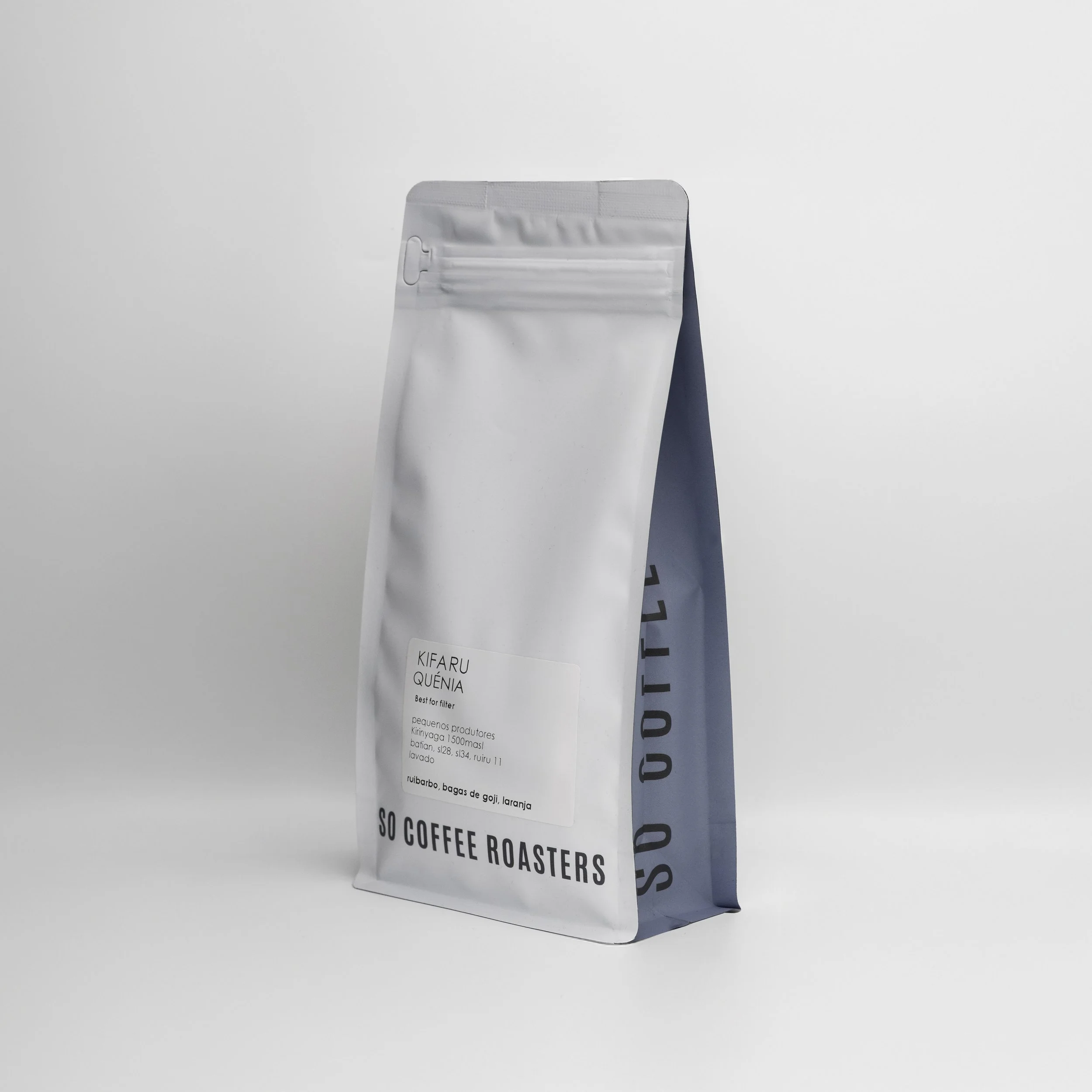



Quénia - Kifaru Lavado
Kifaru – Kirinyaga
Kenya Microlot
Located in the northeastern part of Kirinyaga County, the Kamwangi Factory is one of three processing stations operated by the New Ngariama Farmers Cooperative Society. It is the second station established by the co-op, which supports over 985 active smallholder farmers.
Each farmer typically cultivates 200–250 coffee trees on small plots of land ranging from 1/8 to 1/4 hectare. Alongside coffee, they often grow other crops, relying on central stations like Kamwangi for processing and selling their coffee.
Farmers deliver their ripe coffee cherries to the station, where they are sorted, weighed, and depulped using traditional disc pulping machines. After pulping, the coffee is fermented for 24–28 hours, then washed. The highest quality grades receive an additional soaking period of 12–24 hours, depending on available space on the drying beds.
The coffee is first placed on skin-drying beds until it reaches 44% moisture, then moved to raised drying beds for 9–13 days, where it is carefully turned to ensure even drying. Once it reaches a moisture content of 11–13%, the coffee is transferred to conditioning bins, where it is stabilized and prepared for milling.
Most coffees from Kamwangi are traceable to the factory level, and in some cases, to individual farms. Lots are selected based on cup quality, with top-scoring batches purchased as microlots—typically fewer than 100 bags. Our green coffee buyer is based in Kenya during harvest season to cup hundreds of samples and secure the best lots.
Kifaru
Produtor: vários produtores
Região: kirinyaga 1500masl
Varietal: Batian, SL28, SL34, Ruiru11
Processo: Lavado
ruibarbo, bagas de goji, laranja
Kifaru – Kirinyaga
Kenya Microlot
Located in the northeastern part of Kirinyaga County, the Kamwangi Factory is one of three processing stations operated by the New Ngariama Farmers Cooperative Society. It is the second station established by the co-op, which supports over 985 active smallholder farmers.
Each farmer typically cultivates 200–250 coffee trees on small plots of land ranging from 1/8 to 1/4 hectare. Alongside coffee, they often grow other crops, relying on central stations like Kamwangi for processing and selling their coffee.
Farmers deliver their ripe coffee cherries to the station, where they are sorted, weighed, and depulped using traditional disc pulping machines. After pulping, the coffee is fermented for 24–28 hours, then washed. The highest quality grades receive an additional soaking period of 12–24 hours, depending on available space on the drying beds.
The coffee is first placed on skin-drying beds until it reaches 44% moisture, then moved to raised drying beds for 9–13 days, where it is carefully turned to ensure even drying. Once it reaches a moisture content of 11–13%, the coffee is transferred to conditioning bins, where it is stabilized and prepared for milling.
Most coffees from Kamwangi are traceable to the factory level, and in some cases, to individual farms. Lots are selected based on cup quality, with top-scoring batches purchased as microlots—typically fewer than 100 bags. Our green coffee buyer is based in Kenya during harvest season to cup hundreds of samples and secure the best lots.
Kifaru
Produtor: vários produtores
Região: kirinyaga 1500masl
Varietal: Batian, SL28, SL34, Ruiru11
Processo: Lavado
ruibarbo, bagas de goji, laranja
